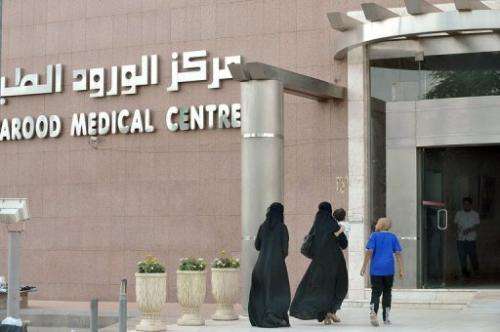Saudi to send animal samples to US in coronavirus probe (Update)

Saudi Arabia said Friday it would send samples taken from animals possibly infected with a deadly SARS-like virus to the United States for testing in a bid to find the source of disease.
The Saudi health ministry has "collected large samples from bats and other animals, including camels, sheep and cats," said Saudi Deputy Health Minister Ziad Memish.
So far, there have been 44 lab-confirmed cases worldwide of the virus, which until now has been known as the novel coronavirus, or nCoV-EMC, but was this week redubbed the Middle East Respiratory Syndrome Coronavirus, or MERS.
Saudi Arabia counts by far the most cases, with 30 confirmed infections and 17 fatalities, while cases have also been detected in Jordan, Qatar, Tunisia, the United Arab Emirates, Germany, Britain and France.
Memish told diplomats gathered in Geneva for the World Health Assembly, the decision-making body of the World Health Organization, that his country until now had not been able to send samples from animals besides bats to the United States.
"But now... we've got an approval to move these samples and they will be shipped for testing," he said.
The virus is a cousin of Severe Acute Respiratory Syndrome (SARS), which triggered a scare 10 years ago when it erupted in east Asia, leaping to humans from animal hosts and eventually killing some 800 people.
Scientists at the Erasmus medical centre in Rotterdam have determined that the virus appears to infect the body via a docking point in lung cells, suggesting bats may be a natural reservoir for it.
Bats were also pinpointed as a likely natural reservoir for SARS in a 2005 study, and are known carriers of the deadly haemorrhagic fever Ebola.
The WHO said Friday that much uncertainty remained surrounding MERS, stressing that it aimed to work closely with Saudi Arabia, Tunisia and perhaps other Middle Eastern countries to determine how great the risk is.
"We will organise joint mission teams as soon as possible to collect all the facts," WHO chief Margaret Chan told delegates in Geneva, adding that not enough was known about the incubation period for the virus, which signs and symptoms to look for and how it spreads.
Without a proper risk assessment, she said, it was difficult to know what advice to give on travel restrictions, for instance.
It was "quite urgent" to determine if any such restrictions were needed before the annual hajj that draws millions of pilgrims to the Muslim holy places in Saudi Arabia in October, she added.
Chan also voiced concern over Riyadh's claim Thursday that foreign laboratories had patented the virus, which it said had slowed down the diagnostics process.
She vowed to investigate which barriers the Saudis were facing and said the WHO's legal department was looking at the legal ramifications of the intellectual property issue.
WHO spokesman Gregory Haertl told reporters it was not possible to patent the actual virus, but rather "the work based on the viral sequence that a lab generates," which is what the scientists at the Erasmus Medical Centre in the Netherlands had done.
That lab however appeared to have openly shared its sequencing with a number of other labs, he said.
© 2013 AFP













